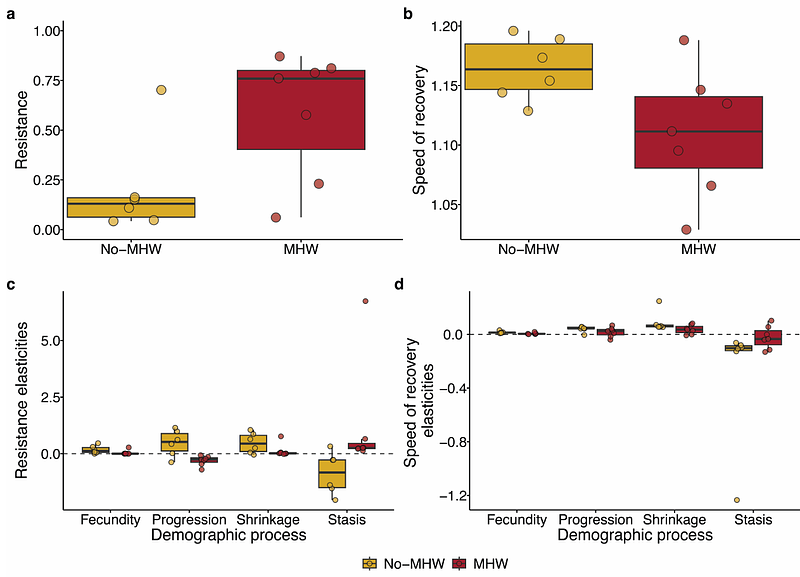Marine heatwaves favour resistant Mediterranean octocoral populations at the expense of their speed of recovery

Marine heatwaves favour resistant Mediterranean octocoral populations at the expense of their speed of recovery
Capdevila, P.; Zentner, Y.; Rovira, G.; Garrabou, J.; Medrano, A.; Linares, C.
AbstractThe effects of climate change are now more pervasive than ever. Marine ecosystems have been particularly impacted by climate change, with Marine Heat Waves (MHWs) being a strong driver of mass mortality events. Even in the most optimistic greenhouse gas emission scenarios, MHWs will continue to increase in frequency, intensity, and duration. For this reason, understanding the resilience of marine species to the increase of MHWs is crucial to predicting their viability under future climatic conditions. In this study, we explored the consequences of Marine Heatwaves (MHWs) on the resilience of a Mediterranean key octocoral species, Paramuricea clavata, to further disturbances to their population structure. To quantify P. clavata\'s capacity to resist and recover from future disturbances, we used demographic information collected from 1999 to 2022, from two different sites in the NW Mediterranean Sea. Our results showed that the differences in the dynamics of populations exposed and those not exposed to MHWs were driven mostly by differences in mean survivorship and growth. We also showed that after MHWs P. clavata populations had slower rates of recovery but did not experience changes in resistance. Populations exposed to MHWs had lower resistance elasticity to progression but higher stasis compared to unexposed populations. In contrast, the only demographic process showing some differences when comparing the speed of recovery elasticity values between populations exposed and unexposed to MHWs was stasis. Finally, under scenarios of increasing frequency of MHWs, the extinction of P. clavata populations will accelerate and their capacity to recover after further disturbances will be hampered. Overall, these findings confirm that future climatic conditions will make octocoral populations even more vulnerable to further disturbances. These results highlight the importance of limiting local impacts on marine ecosystems to dampen the consequences of climate change.